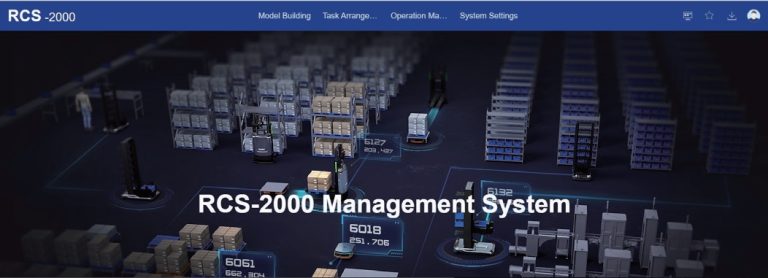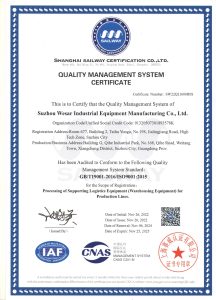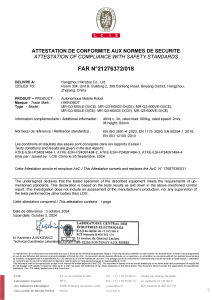

Robot Control System (RCS) is a centralized system for task assignment, AMR scheduling, and route planning for infield logistics robots. Externally, as a downstream system of the order system, the RCS system undertakes the processing of orders. Internally, the RCS system communicates and interacts with access control, elevators, and other equipment within the environment to complete full-field traffic automation. Finally, the RCS system provides complete robot queue exception monitoring and management.
Key Features
Flexible task flow arrangement to cover business scenarios
Multi-branch flows, and adapting to complex business scheduling.

Intelligent Decision Making / Cluster Operation
Accommodates up to 1,200+ robots in one map,
supports assigning tasks to 1,000 AMRs in 1 second, and supports 300 different models of AMR to perform tasks.

Mixed scheduling of multiple AMR types
To cope with more complex scenes of multiple robots working together, it supports same-field coexistence of and transferring between multiple types of robots, such as LMR, FMR, CTU, and CMR.

Service visualization
System configuration is visualized to improve implementation and deployment efficiency, and statistical data is visualized to simplify operational analysis process.

Application Cases
The system serves such industries as manufacturing, consumer electronics, automobile, logistics, food and pharmaceuticals, and fast-moving consumer goods. Through the controlling and scheduling of robots, it realizes the handling automation of raw materials, semi-finished products, and finished products between production lines, between production lines and warehouses, and within warehouses, reducing labor costs and improving work efficiency.
|
Tianjin FAW Toyota NEV Plant |
Pain points: Huge production scale, with 1100+ AMRs of multiple models and with different navigation modes in a single layer; small space for material transportation, and high requirements for timeliness and accuracy of material distribution. Solution: RCS-2000 enables scheduling in ultra-large-scale cluster, supporting intelligent operation of thousands of AMRs; with successive carrying mode, it helps timely delivery of materials to the production line and makes reasonable use of the limited space; it controls the materials to be delivered in strict order without errors through intelligent algorithms. |
 |
|
Hikvision Tonglu Manufacturing Plant |
Pain points: Large scale manufacturing facility, with multiple production scenarios and logistics links; low delivery efficiency due to manual operation; non-intuitive production data causing lack of data basis for improving production efficiency. Solution: The system is deployed in clusters to expand performance and support phased on-line operation of many factories. It provides scheduling of multiple types of robots for collaborative operation in complex carrying scenarios, and reduces manual working intensity through calling robots to perform long-distance transportation. It can seamlessly dock with the production system of the factory to realize onlineization of order processing and delivery task performance. It provides visualized task dashboards to present the production status in real time, and output data reports to provide data support for decision-making. |
 |
|
Xuchang Yuto Whole Factory Logistics Project |
Pain points: High requirements for delivery tempo, with large tempo fluctuations in the same day; fast turnover of materials, with high demands for storage space and pursuit of high-level rack storage; long-distance delivery, with the need to transfer across floors.
|
 |


© Copyright 2025 Wesar intelligence Co., Ltd.